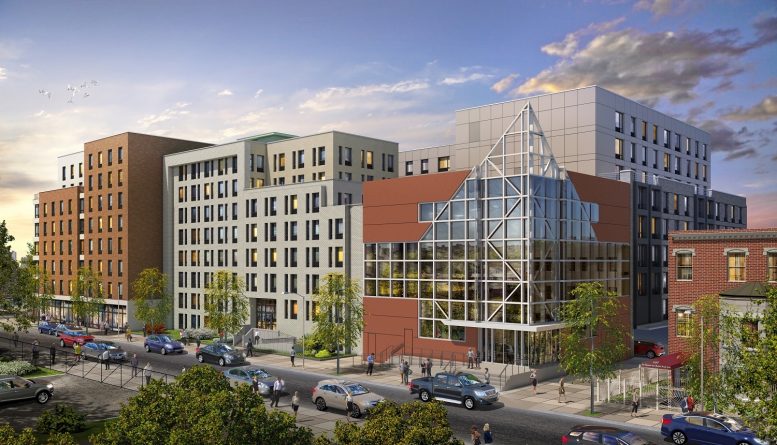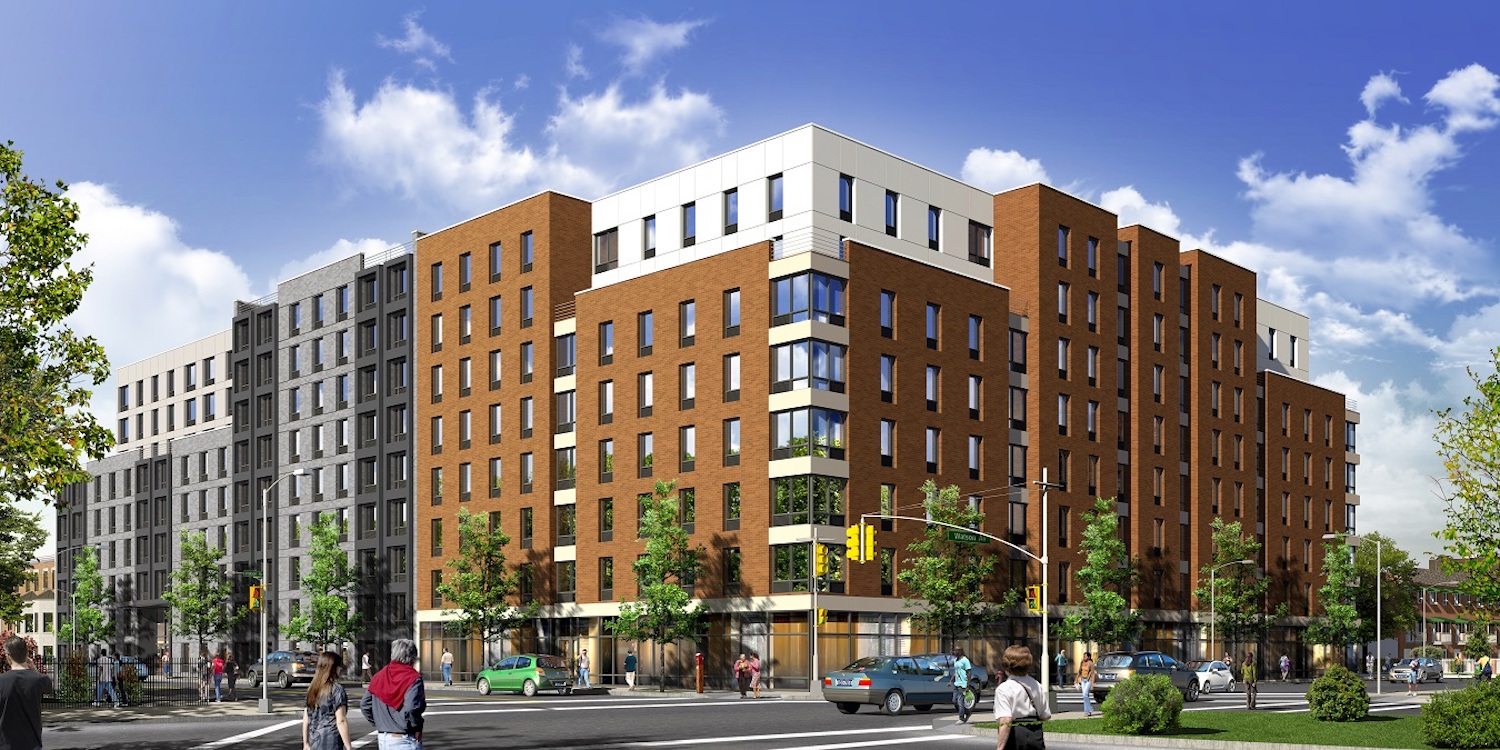Next phase of the Environmental Justice for All Report moves forward; Our city cannot build a just and equitable recovery without addressing environmental injustices in frontline communities
Mayor Bill de Blasio and the NYC Environmental Justice Advisory Board today announced the commencement of a public comment period from August 5th to September 5th, 2021 to give New Yorkers the power to influence the scope of the Environmental Justice for All Report, an unprecedented comprehensive study of environmental justice issues that will lead to the development of a citywide Environmental Justice Plan. Once finalized, the scope will define the list of environmental justice concerns under review and methodologies to be used to examine City programs, policies, and public engagement processes that impact environmental justice issues and environmental decision-making.
“Addressing environmental injustice and racism requires accountability, reflection, and collaboration,” said Mayor Bill de Blasio. “The Environmental Justice for All Report needs to be shaped around New Yorkers’ lived experiences and expertise. Their voices will be the cornerstone of the City’s plan for environmental justice and equity moving forward.”
“The city's Environmental Justice Interagency Task Force has completed its first draft of the citywide environmental justice study which the advisory board is eager to get underway,” said Peggy Shepard, Co-Founder & Executive Director of WE ACT for Environmental Justice and Chair of the New York City Environmental Justice Advisory Board. “Now we need feedback from residents living and working in environmental justice communities to ensure that the city has accurately captured concerns and input from the most affected residents in the city's frontline neighborhoods before beginning the study, which will serve as the basis for our citywide report and plan of action. The Environmental Justice Advisory Board urges affected residents living in environmental justice communities to offer their concerns and recommendations to inform the scope of the study so it will be comprehensive and relevant.”
The draft scope, which has been summarized and translated into plain language and the City’s top five languages, was informed by comments from 1,070 New Yorkers, groups, and elected officials on the climate, environmental, and health issues that impact their communities during a comment period from February-April of this year. Nearly 70 percent of the survey participants came from Environmental Justice Areas, and they listed access to healthy food, poor indoor air quality, and pests as their top environmental justice concerns.
“Environmental decision-making must be inclusive of those most impacted by the policies and services we create,” said Ben Furnas, Director of the NYC Mayor’s Office of Climate and Sustainability. “We want to hear from all 8.5 million New Yorkers, and especially those in Environmental Justice Areas, on how we can address environmental injustices and mitigate the dire impact of climate change on frontline communities. I want to thank the Advisory Board for working with our team to create a community-led environmental justice study.”
“The release of the draft scope is one step in a transformative process for the City to deliver on our environmental justice commitments,” said Adriana Espinoza, New York City’s Senior Advisor for Environmental Justice. “With today’s announcement, we want to let New Yorkers know that we heard their concerns and priorities during the first comment period, and we are committed to providing opportunities now and in the future to co-create this landmark report.”
In 2017, Mayor Bill de Blasio signed into legislation Local Law 60 and Local Law 64 to codify environmental justice into the City’s decision-making process. Under the legislation, the NYC Mayor’s Office of Climate and Sustainability and an Environmental Justice Interagency Working Group are responsible for delivering the City's first comprehensive study of environmental justice.
The Environmental Justice for All Report will study the city's Environmental Justice Areas, analyze environmental and climate issues, and identify which communities are being disproportionately impacted by environmental burdens and which are not seeing the benefits of green investments made by the City. The report will inform the development of a citywide Environmental Justice Plan.
New Yorkers can submit comments on the draft scope of the Environmental Justice for All Report by September 5th, 2021 online, over the phone, or in-person.
Online
Visit nyc.gov/ejstudy to read the draft scope in English, Spanish, Chinese, Bengali, Haitian Creole, and Russian, and submit the comments electronically under the Public Comment section. You can also email your comments to EJ@climate.nyc.gov.
Phone
Leave us a voice message at 212-788-4144.
In-Person
NYC Summer Townhall on Environmental Justice
Wednesday, August 18, 2021
6:00 PM - 8:00 PM
Register for the Town Hall
American Sign Language interpretation and live captioning will be provided. Interpretación disponible | 提供口译 | Entèpretasyon ki disponib | Доступен перевод | ব্যাখ্যা উপলব্ধ
The People's Festival
August 20 - September 3, 2021 in the five boroughs
More information on the locations and how to get involved here.
"Environmental justice touches all aspects of our city, from preparing our built environment for climate change to improving public health outcomes in frontline communities to increasing access to green spaces and more," said Deputy Mayor for Housing and Economic Development Vicki Been. "The Environmental Justice for All report will ensure New Yorkers from every corner of our city can shape their future and have their voices heard."
“The issues of environmental justice and human rights are inextricably linked,” said Carmelyn P. Malalis, Chair and Commissioner of the NYC Commission on Human Rights. “Access to green spaces, programs for sustainability, and education are key components to creating a city free of environmental harms. We know that our environment affects everything from food security and health to education and housing, which is why it is imperative that New Yorkers make their voices heard during this period of open public comment. Together we can create a New York City that is safe, healthy, and equitable for all.”
"Environmental justice is a fundamental issue of both fairness and public health," said Lisette Camilo, Commissioner of the NYC Department of Citywide Administrative Services. "City government must ensure that it is actively addressing environmental justice through its own operations and the policies it puts in place. DCAS is proud to partner on the Environmental Justice Report and to do everything it can to advance this important cause."
“As we plan for equity, environmental justice must be at the forefront of our work. Whether it’s cleaning up polluted sites in long overlooked neighborhoods or making sure that we protect our vulnerable BIPOC communities from the impacts of climate change, we will continue to work towards a city that leaves no New Yorker behind. Please, get involved and make your voice heard on this vital issue,” said Department of City Planning (DCP) Marisa Lago.
“The Environmental Justice for All Report will be a critical tool to help all New Yorkers better understand environmental and climate impacts in their neighborhoods and it will help the City plan to make the necessary investments to address those impacts, said DEP Commissioner Vincent Sapienza. “We hope that a broad array of New Yorkers will provide feedback so that the Report will be as responsive as possible to New Yorkers' needs.”
“New York City is a collection of islands, and there is no greater challenge we collectively face than the increasingly alarming effects of climate change. Only through open communication, thoughtful planning and aggressive action can we overcome these challenges, building a more sustainable and resilient city for all New Yorkers. We are proud of our continued partnership helping to create this first-of-its-kind environmental justice report, which once finished, will lay the groundwork for how our city tackles this issue moving forward,” said DOB Commissioner Melanie E. La Rocca.
"Environmental justice advances health equity, which is a core priority for the Health Department," said Health Commissioner Dr. Dave A. Chokshi. "More hot summer days and poor air quality from wildfires on the other side of the country show how dire the stakes are. We urge New Yorkers – especially those living in communities most affected – to help guide future environment justice priorities.”
“Our parks and greenspaces are essential in addressing the impacts of climate change, and environmental justice must be at the forefront when we design, plan, and care for them,” said NYC Parks Acting Commissioner Margaret Nelson. “We are proud to have served as part of the working group that prepared this community-informed draft scope, and we thank Mayor de Blasio, the Office of Climate and Sustainability, and the Advisory Board for continuing to advance this important study.”
“New York City has a deep commitment to environmental justice – righting the wrongs of the past that have led to disparate health outcomes in communities across the city – and DSNY is proud to be a part of that work. We look forward to hearing from the public and working with the Mayor’s Office of Climate and Sustainability to implement environmental justice measures going forward,” said Edward Grayson, Commissioner of the New York City Department of Sanitation.
“This robust public process provides an important opportunity for New Yorkers to shape the City’s plans to put environmental justice front and center in support of the frontline communities most burden by environmental hazards,” said HPD Commissioner Louise Carroll. “As described in the City’s Where We Live fair housing plan, the legacy of housing crimination and environmental justice are deeply intertwined and have real ramifications for how we serve neighborhoods. We are excited to hear from the public on the issues outlined in the Environmental Justice for All Report, and to take that feedback into account as we push forward with our housing work. I want to thank the Advisory Board and the Mayor’s Office of Climate and Sustainability for leading this effort.”
“NYCHA is fully invested in being an important part of this interagency effort to comprehensively analyze the environmental and climate issues affecting our residents and the city at-large,” said NYCHA Chair & CEO Greg Russ. “We want to thank the Mayor’s Office of Climate and Sustainability for spearheading this initiative and look forward to the insights that result from this engagement process.”
“Climate change is happening now—and its impacts are not distributed equally. In many cases, low-income communities and communities of color face the highest risks from flooding and extreme heat,” said Jainey Bavishi, Director of the Mayor’s Office of Climate Resiliency. “This public process will ensure that the voices of New York City’s frontline communities are heard as we continue to plan new climate resiliency projects across the five boroughs.”
“We look forward to learning more about the concerns of residents of the City’s environmental justice neighborhoods,” said Mark McIntyre, Director of the Mayor's Office of Environmental Remediation. “We are eager to help them share in environmental benefits such as free soil distribution to community gardens through the NYC Clean Soil Bank.”
"This is such an important moment in the work to make New York City a more environmentally just City," said Kate MacKenzie, Executive Director of the Mayor's Office of Food Policy. "Getting to solutions requires a truly inclusive process and this public comment enables that. I know that food has come up again and again as a major issue of intersection with environmental justice and I am committed to working with food stakeholders in particular to make sure they are participating in this process."
"The New York Civic Engagement Commission is proud to support the work of the NYC Environmental Justice Advisory Board as they move towards developing an accountability framework which truly centers ‘recovery for all.’ It is vital that New Yorkers get engaged and contribute their voices and opinions during this public comment period, whether remotely or in person, including at The People’s Festival. We can only have a sustainable future by actively listening to each other and working together."




